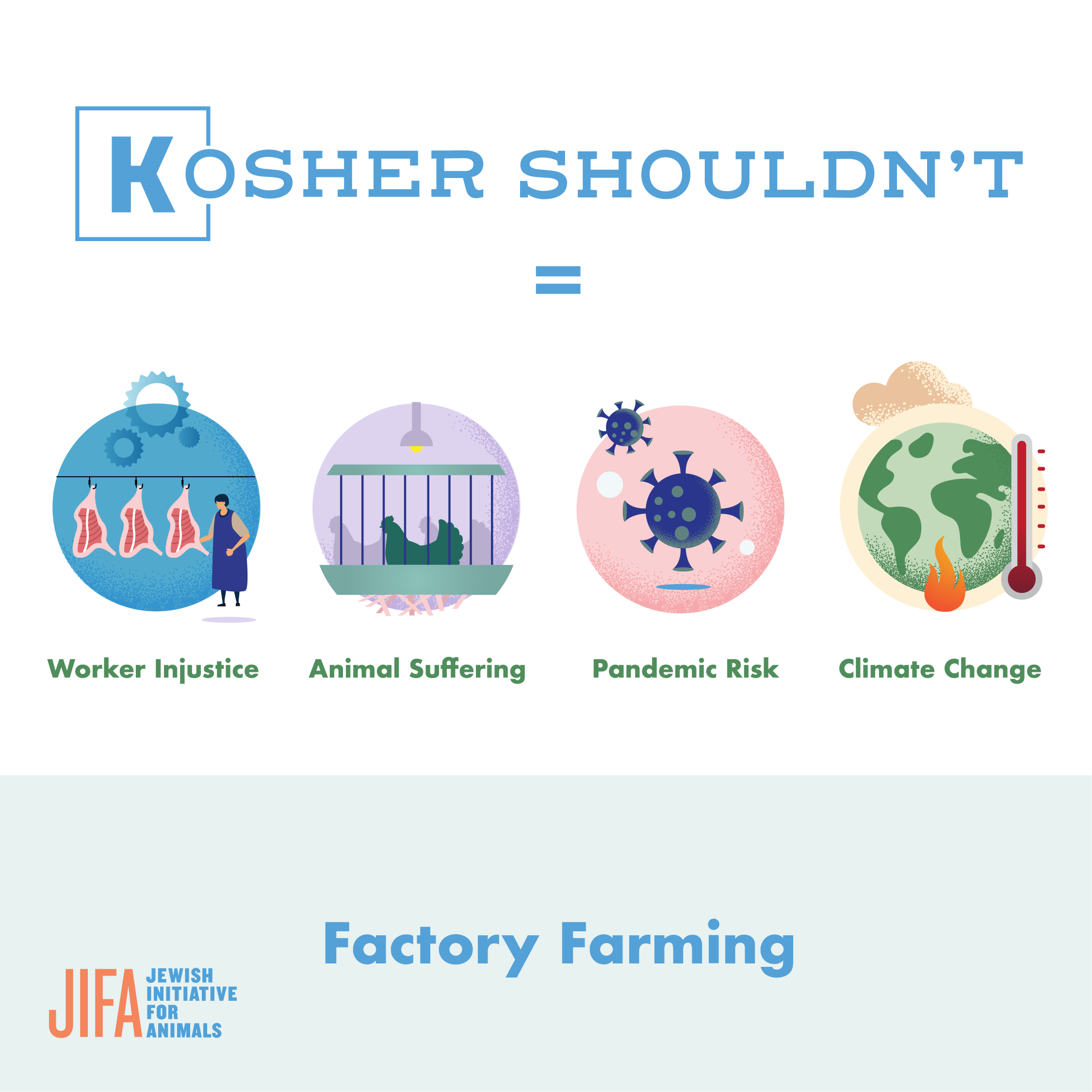Today marks the launch of JIFA’s new campaign, which raises awareness about the phenomenon of kosher humanewashing (when kosher labels promote the faulty consumer belief that products are safer, healthier, and come from farms that treat animals more humanely), while urging Jewish community members to ask Jewish leaders to support better food practices. ‘When buyers look for a kosher certification, they likely aren’t equating the food behind the label with pollution and greenhouse gas emissions, worker exploitation, pandemic outbreak risk, and mass animal suffering—the hallmark features of industrial animal agriculture. However, all kosher-certified animal products found in grocery stores today come from animals raised in the exact same industrial conditions as animals raised for non-kosher poultry, fish1 , milk, and beef products.The meaning of kosher has evolved with increased industrialization. Thanks to a long tradition of kashrut being associated with Jewish ethical concerns and more stringent religious oversight, both kosher-observant Jews and the broader public perceive kosher-certified products as inherently better. In addition, in 2021 JIFA analyzed data showing that Jewish shoppers are more likely to buy products with the unregulated label “humane,” which can result in kosher consumers being doubly deceived. We need to call out kosher healthwashing and humanewashing: when kosher labels promote the faulty consumer belief that products are safer, healthier, and come from farms that treat animals more humanely.
Jewish values can guide what conscientious consumption looks like. It is time that our institutions, equipped with the truth about kosher labels today, work to align their food sourcing practices with their Jewish sensibilities around caring for animals, people, and the planet.
Join JIFA and Jewish leaders across the nation in stating that kosher should not be synonymous with factory farming.’ Sign up here.




















